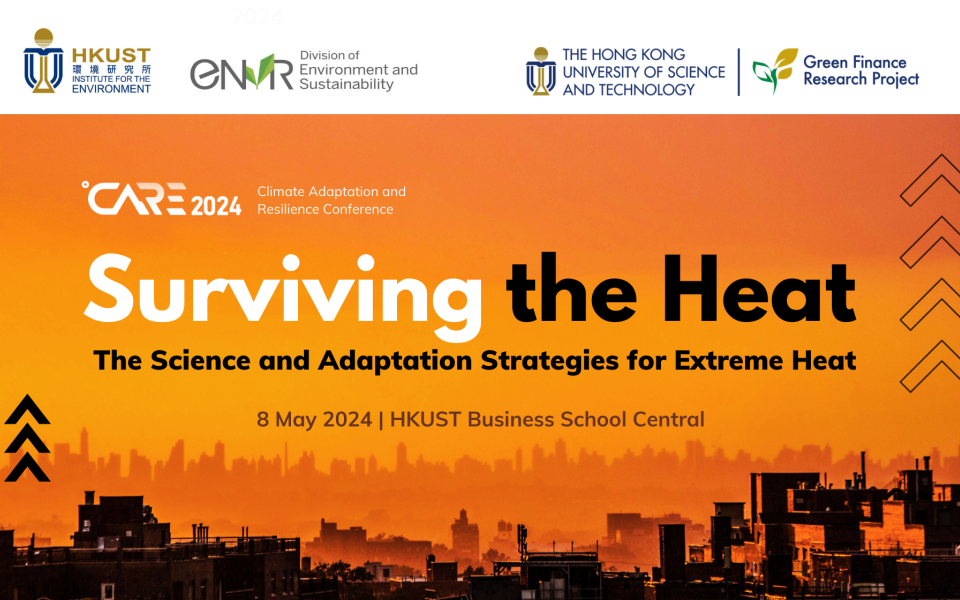The relentless heat continues to break records in Hong Kong. This past March, temperatures soared to an astounding 31.5 degrees, shattering the 140-year-old mark and leaving the previous benchmark of 30.1 degrees far behind. An unprecedented four days saw temperatures exceeding 30 degrees - a stark reminder of the scorching summer ahead. Scientists warn this climate change-fueled El Nino summer threatens to push boundaries even further, surpassing the sweltering heat of recent years.
To address these urgent climate impacts, the HKUST Division of Environment and Sustainability, and Institute for the Environment are convening a public forum as part of CARE2024. World experts presented the latest science on extreme heat, focusing on rapidly warming urban Asia, including Hong Kong and the Greater Bay Area. The forum explored heat's multifaceted societal effects - on vulnerable groups, mental health, and more. Discussions centered on innovative solutions from around the globe that could help mitigate extreme heat in these dynamic regions.
By bringing together leaders from climate science, the forum aimed to both educate and inspire action for a more sustainable future for all.
This public forum was part of the CARE2024 Surviving the Heat Conference organized on 6-7 May 2024 at the HKUST Campus. The Conference brought together the esteemed international speakers to share the updates of extreme heat, as well as their insights on the impacts of heat stress and heat adaption. Program of the Conference is available HERE to download.
| 2:00pm | Registration |
| 2:30pm | Opening Remarks by Prof. Alexis Lau, Head and Chair Professor, Division of Environment and Sustainability, HKUST |
| 2:40pm | Panel 1 | Hotter than Ever: The Latest Science and Projections on Extreme Heat |
|
Panelists:
Moderator: Mr. Chi-ming Shun, Adjunct Professor, Division of Environment and Sustainability, HKUST |
|
| 3:40pm | Coffee Break |
| 3:50pm | Panel 2 | Unleashing the Heat: Navigating the Impacts and Adapting to Extreme Heat |
|
Panelists:
Moderator: Prof. Alexis Lau, Head and Chair Professor, Division of Environment and Sustainability, HKUST |
|
| 5:20pm | Closing Remarks |
| 5:30pm | Event Ends |
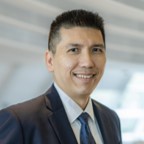
Prof. Winston Chow
Prof. Winston Chow is a Professor of Urban Climate and Lee Kong Chian Research Fellow based at Singapore Management University’s (SMU) College of Integrative Studies (CIS), and also is the research pillar lead for urban infrastructure at SMU’s Urban Institute. He has been a Principal Investigator for the multi-institute Cooling Singapore initiative since 2017, and currently leads inter-disciplinary research on how Singapore’s urban climate risks will change as its climate warms, as well as examining measures to reduce these risks. He teaches Undergraduate and Executive Development courses on climate change and urban sustainability at CIS, and is also mentoring CIS students interested in sustainability issues and also developing courses for SMU's Master of Sustainability programme. In 2023, he was elected as Co-Chair of the Intergovernmental Panel on Climate Change's (IPCC) Working Group II on Impacts, Adaptation and Vulnerability, and he will help lead the Seventh Assessment Cycle for the IPCC during a critical decade of global climate action.

Prof. Enrica De Cian
Prof. Enrica De Cian is professor in environmental economics at Ca’ Foscari Unversity of Venice in Italy and ERC Starting Grant grantee with the project ENERGYA – Energy use for Adaptation (www.energy-a.eu). She coordinates Ca’ Foscari’s PhD in Science and Management of Climate Change. She is deputy coordinator of the research unit on Economic analysis of Climate Impacts and Policy at Fondazione Centro Euro-Mediterraneo sui Cambiamenti Climatici (CMCC) in Italy. She is also principal investigator of the Research Cluster Energy humanities at The New Institute Center for Environmental Humanities (NICHE), Ca’ Foscari University of Venice, Italy. She has collaborated with several research organizations in Europe (CEPS, ZEW) and in the US (JP at MIT, Boston University). In 2012, she was visiting researcher at BU funded by the European Commission Global Marie Curie Research Fellowship. She has published in the fields of climate change economics, integrated assessment modelling, and energy economics

Prof. Peter J. Crank
Prof. Peter J. Crank is an Assistant Professor in the Department of Geography and Environmental Management at the University of Waterloo. His work on urban heat particularly in the spaces of urban microclimatology and mental health includes locations known for their heat (e.g., Phoenix, Arizona and Singapore), but has recently begun transitioning to locations where heat is a new threat (Canada). He holds a Ph.D. in Geography from Arizona State University specializing in microclimate measurement and modeling methods as well as statistical environmental epidemiology relating to extreme heat impacts on older adults and on mental health.

Prof. Laurence L Delina
Prof. Laurence L Delina is an Assistant Professor of Environment and Sustainability at the Hong Kong University of Science and Technology, specialises in sustainable development with a focus on rapid mitigation of climate change, accelerating sustainable and just energy transitions, and adaptation and resilience of vulnerable populations to climate extremes. He has authored over fifty peer-reviewed journal articles and four books on these topics. Laurence serves as an associate editor for Energy Research & Social Science, PLOS Climate, and the Journal of Environmental Studies and Sciences. He has worked as a consultant on energy and climate issues for the United Nations, Oxfam, and Heinrich-Böll-Stiftung. Laurence has previously been a Rachel Carson Fellow and a Visiting Fellow at Harvard Kennedy School. He received his PhD from the University of New South Wales Sydney.
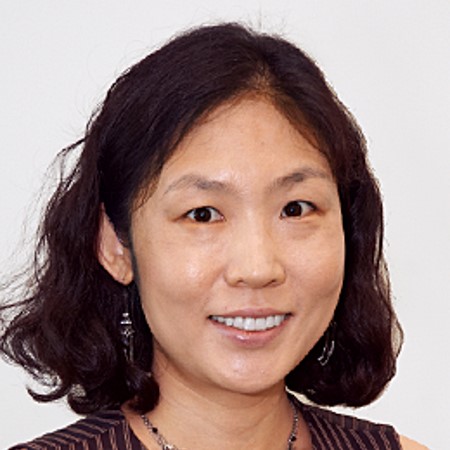
Prof. Eun Soon Im
Prof. Eun-Soon Im is an Associate Professor in the Division of Environment and Sustainability and Department of Civil and Environmental Engineering at The Hong Kong University of Science and Technology. Prior to her current position, she worked as a research scientist at the National Institute of Meteorological Research (Korea), International Centre for Theoretical Physics (Italy), and Singapore-MIT Alliance for Research and Technology (Singapore). Dr. Im specializes in developing and improving the Regional Climate Model (RCM) and has conducted research on regional climate changes in various regions worldwide. Her research aims to advance understanding of potential changes in regional climate due to anthropogenic forcings (such as greenhouse gas emissions and land-use changes) and to produce highquality climate information for comprehensive impact assessment, particularly in regions with complex physiographical features.
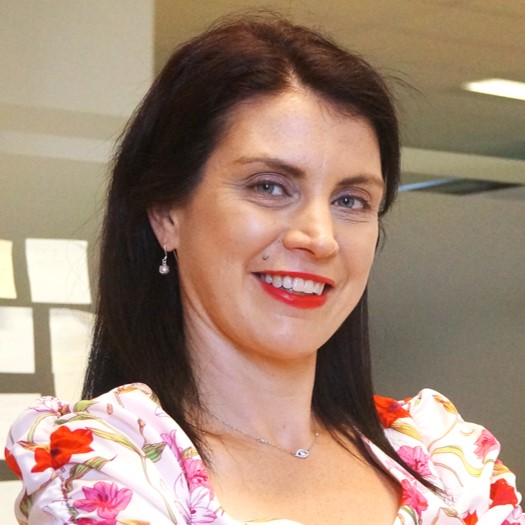
Prof. Sarah Perkins-Kirkpatrick
Prof. Sarah Perkins-Kirkpatrick completed her PhD at the University of New South Wales in 2010. She has previously held an Australian Research Council (ARC) Discovery Early Career Researcher Award (DECRA) and Future Fellowship. She is currently a professor at the Australian National University in Canberra, Australia, where is also a deputy director on the ARC Centre of Excellence for 21st Century Weather, and a chief investigator on the ARC Centre of Excellence for Climate Extremes. Sarah is also the Vice President of the Australian Meteorological and Oceanographic Society.
Sarah’s work investigates past and future trends in heatwaves globally and in Australia, as well as exploring the role of human activity behind these changes. Her current projects include researching comprehensive methods of attributing heatwaves to climate change, how we might be able to attribute the health impacts of heatwaves to climate change; future projections of heat and humidity; and heatwaves in a net-zero world.
Sarah was the recipient of the 2013 Young Tall Poppy Award, the 2014 Director's Prize from the ARC Centre of Excellence for Climate System Science and the 2016 Australian Meteorological and Oceanographic Society Early Career Researcher Award. In 2016 she was named one of ‘UNSW’s 20 rising stars who will change the world’, and in 2021 she won the Australian Academy of Science Dorothy Hill Medal, as well as the Australian Meteorological and Oceanographic Society Communications and Outreach Award. She has been named a Clarivate highly cited researcher for 2021, 2022 and 2023.
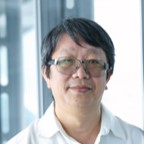
Prof. Alexis Lau
Prof. Alexis Lau, JP, is Head and Chair Professor of Division of Environment and Sustainability, Chair Professor of Department of Civil and Environmental Engineering, and Director of the Institute for the Environment at Hong Kong University of Science and Technology.
Prof. Lau specializes in air quality and health exposure, weather and climate, and environmental policies, with recent focuses on climate adaptation and resilience, as well as shaping the transition to green finance based on climate science. His professional techniques include the analysis of large-scale geophysical datasets, numerical models, and in-situ and satellite remote sensing.
Prof. Lau is a fellow of the Hong Kong Meteorological Society, a founding member of the Hong Kong Climate Change Forum, a scientific advisor to the Hong Kong Observatory, as well as a founding board member and chair of the Qualification Panel of the Hong Kong Institute of Qualified Environmental Professionals. Currently, Prof. Lau is leading the first pan-Pearl River Delta Air Quality study managed jointly by the regional governments under the “Cooperation Agreement on Regional Air Pollution Control and Prevention among Hong Kong, Guangdong, and Macao”. Additionally, he is a member of the Scientific Advisory Group of the World Health Organization Panel on the development of a Global Platform on Air Quality and Health.
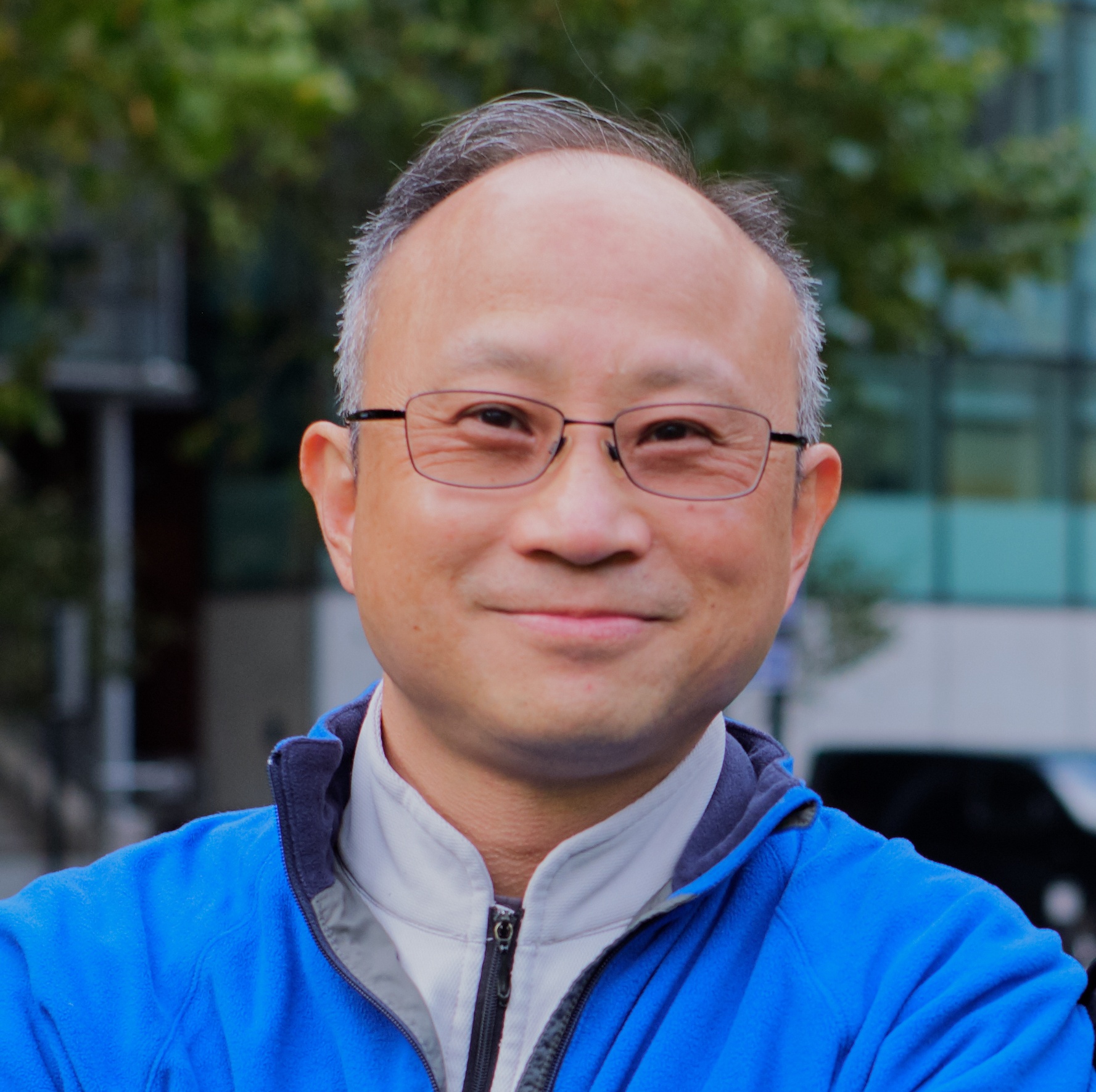
Dr. Tsz-cheung Lee
Dr. Lee Tsz-cheung studied Physics at the University of Hong Kong and received his Ph.D in 1995. He joined the Hong Kong Observatory in 1993 and has involved variously in weather forecasting, tropical cyclone research, climate services, climate change and climate prediction. Present responsibilities include climate forecast services and climate change studies. He has been actively participating in research studies related to tropical cyclone, climate change, urban climatology, and weather and health. Regarding international participation, Dr Lee is currently the Chair of the Advisory Working Group of the United Nations ESCAP/WMO Typhoon Committee. He is also one of the contributors of the WMO Guidance on Integrated Urban Hydrometeorological, Climate and Environmental Services.

Dr. Albert M Salamanca
Dr. Albert M Salamanca is a Senior Research Fellow at the Stockholm Environment Institute’s Asia Centre, where he leads its Climate Change, Disasters and Development cluster. Albert has over 20 years of experience working on climate change adaptation, natural resources management, conservation, development, and sustainable livelihood issues in several Southeast Asian countries. His research interests are resilience, risk and vulnerabilities, traditional ecological knowledge, mobility and spatial linkages, disaster displacement, and sustainable livelihoods. He is a UK GCRF Living Deltas Hub member and the WIM Loss & Damage Expert Group on Slow Onset Events. He also contributes to weADAPT, an adaptation portal. His co-edited volumes entitled "Climate Change, Disasters, and Internal Displacement in Asia and the Pacific" and "The Routledge Handbook of Global Development" were published recently.
He previously led SEI’s global Transforming Development and Disaster Risk initiative, the Regional Climate Change Adaptation Knowledge Platform (AKP) and the Partnership in Governance Transition: the Bali Cultural Landscape. He has a PhD in Geography from Durham University (UK).
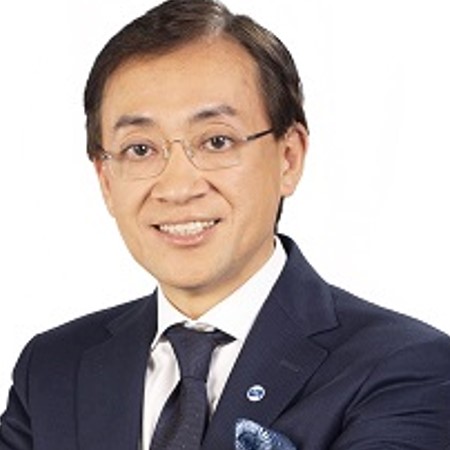
Chi-ming Shun
Mr. Shun Chi-ming graduated from the University of Hong Kong in Bachelor of Science, with major in Physics. He joined the Hong Kong Observatory in 1986. He received post-graduate training in radiological protection and meteorology in the United Kingdom in 1987-88. Mr Shun specialized in aeronautical meteorology since the 1990s and led the development of the world-first LIDAR Windshear Alerting System for the Hong Kong International Airport. Mr Shun was promoted to Director of the Hong Kong Observatory in 2011 and retired in 2020.
In the international arena, Mr. Shun was President of the Commission for Aeronautical Meteorology of the UN World Meteorological Organization during 2010-2018, the first Asian elected to take up this high international position. He was also the Vice-Chairman of the Asia/Pacific Communications, Navigation and Surveillance / Meteorology Sub-Group, in charge of Meteorology, of the UN International Civil Aviation Organization during 2003-2009.
After retirement, Mr. Shun has been active in popularization of science and meteorology, as a writer of books, columnist on climate change, and speaker for schools and professional bodies. He also co-organized HKUST’s Climate Adaptation and Resilience Conference (CARE2022). In May 2023, Mr Shun was appointed member of the Council for Carbon Neutrality and Sustainable Development.

Eva Yeung
Ms. Eva Yeung is a Senior Manager of Community Resilience Service at the Hong Kong Red Cross. She is passionate about promoting participatory approach and community resilience agenda. She has been actively involved in humanitarian development with international NGOs, including disaster relief and disaster risk reduction both locally and internationally.
Eva is the Chairperson of the IFRC Asia Pacific Community Resilience Community of Practice, Vice-Chair of the IFRC Disaster Risk Reduction Working Group, and the Core Group Member of the Asia Pacific Urban Community Resilience Hub, focusing on research and development relating to community resilience, urban development, disaster risk reduction and climate change adaptation.
